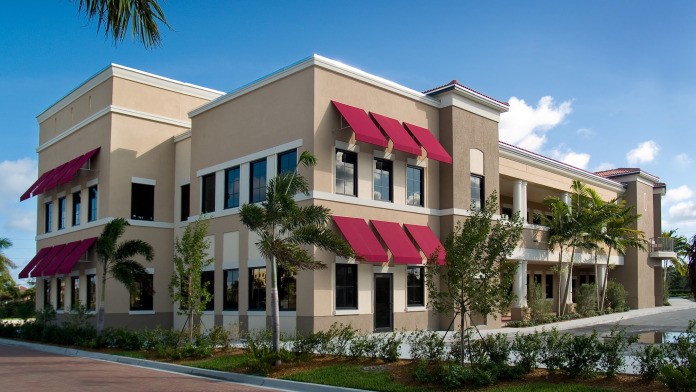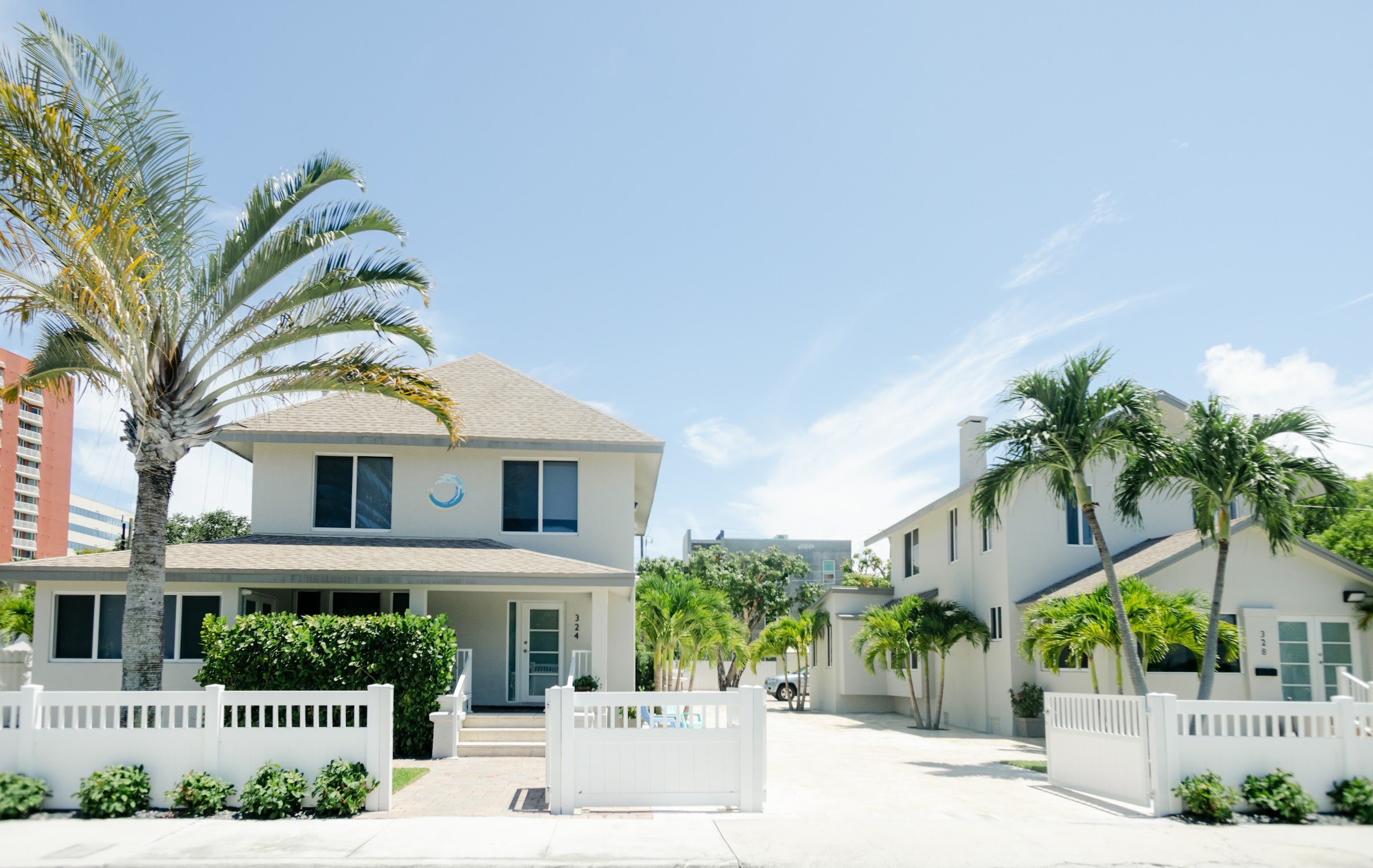If I could give this place zero stars, I would. The level of negligence, disorganization, and utter disregard for patients and their families is beyond disgraceful. From day one, we were given nothing but empty promises, endless runarounds, and a complete lack of professiona ...
About Caron Ocean Drive
The program in Florida is private pay only. They do offer zero interest financing through M-Lend Financial and Prosper. You may also qualify for some financial assistance.
The first step of the program is detox where you’ll rid your body of harmful substances. Expect a comprehensive assessment and urine and blood screenings. You’ll be detoxing in a medical center, so you’ll have monitoring around the clock by physicians, nurses, and nurse practitioners, and you’ll have a case manager.
If appropriate, you’ll have medication assisted treatment (MAT) to ease withdrawal symptoms. They can also monitor you if you have additional conditions like diabetes, heart disease, or chronic pain.
After detox, you’ll start your personalized treatment plan. You’ll be assigned a primary therapist and a family therapist and begin weekly individual therapy sessions where you’ll address co occurring disorders like anxiety or depression. There is also group therapy.
There are plenty of amenities. Meals are nutritious and prepared by executive chefs, and you’ll eat in a private dining room reserved only for the people in the program. You’ll have access to a pool, gym, media room, and a personal fitness trainer. There’s also a concierge service to assist with running errands and helping you manage appointments and arrange travel.
Because addiction is a family disease, there’s a three day family workshop. You’ll have an opportunity to do some in depth work with a family member to address his or her needs while also working to improve your relationship.
After the program, there’s a custom care plan to help you with accountability, routine, and structure in recovery. There are monthly workshops to continue to explore your underlying issues and enhance your coping, intimacy, and communication skills. For an extra fee, you can have executive coaching to help you find success in your career while maintaining sobriety.
Latest Reviews
At Caron, we are deeply committed to transforming lives through an integrative approach that includes advanced neurocognitive assessments, individualized treatment plans, and a strong foundation in both medical science and clinical expertise. Our brain health program is designed to help patients and families better understand how the brain influences behavior, decision-making, and recovery—so it’s especially meaningful to hear that this part of our care stood out to you.
We are proud to offer ethical, evidence-based treatment in a supportive environment, and we remain focused on removing barriers to care through in-network insurance partnerships whenever possible.
Thank you again for your support and recommendation—it’s because of voices like yours that others feel inspired to seek help. We wish you and your cousin continued strength and healing.
Rehab Score
Gallery

Accepted Insurance
Other Forms of Payment
Private insurance refers to any kind of healthcare coverage that isn't from the state or federal government. This includes individual and family plans offered by an employer or purchased from the Insurance Marketplace. Every plan will have different requirements and out of pocket costs so be sure to get the full details before you start treatment.
Self-pay involves paying for treatment out of your own pocket. You can use savings or credit, get a personal loan, or receive help from family and friends to fund your treatment. If you don't have insurance or your insurance plan doesn't cover a specific program, self-pay can help ensure you still get the care you need.
Financing your treatment can make treatment more accessible. You'll work with your care provider to set up payment plans, including interest rates and repayment timelines. Financing options vary widely and not all programs offer them, so be sure to get the full details before enrolling in treatment. If you have insurance or other benefits, financing may help you cover your remaining out of pocket expenses.
Financial aid can take many forms. Centers may have grants or scholarships available to clients who meet eligibility requirements. Programs that receive SAMHSA grants may have financial aid available for those who need treatment as well. Grants and scholarships can help you pai for treatment without having to repay.
Addiction Treatments
Levels of Care
 Inpatient
Inpatient
 Aftercare Support
Aftercare Support
 12-Step
12-Step
 Intervention Services
Intervention Services
 Medically Assisted Detox
Medically Assisted Detox
 Partial Hospitalization Program
Partial Hospitalization Program
 Intensive Outpatient
Intensive Outpatient
 Outpatient
Outpatient
Treatments
The goal of treatment for alcoholism is abstinence. Those with poor social support, poor motivation, or psychiatric disorders tend to relapse within a few years of treatment. For these people, success is measured by longer periods of abstinence, reduced use of alcohol, better health, and improved social functioning. Recovery and Maintenance are usually based on 12 step programs and AA meetings.
Drug rehab in Florida provides quality treatment to help individuals overcome dependency related to a wide range of addictive substances. Programs address both the physical and mental aspects of addiction in order to help you make a full recovery.
Many of those suffering from addiction also suffer from mental or emotional illnesses like schizophrenia, bipolar disorder, depression, or anxiety disorders. Rehab and other substance abuse facilities treating those with a dual diagnosis or co-occurring disorder administer psychiatric treatment to address the person's mental health issue in addition to drug and alcohol rehabilitation.
A combined mental health and substance abuse rehab has the staff and resources available to handle individuals with both mental health and substance abuse issues. It can be challenging to determine where a specific symptom stems from (a mental health issue or an issue related to substance abuse), so mental health and substance abuse professionals are helpful in detangling symptoms and keeping treatment on track.
Opioid rehabs specialize in supporting those recovering from opioid addiction. They treat those suffering from addiction to illegal opioids like heroin, as well as prescription drugs like oxycodone. These centers typically combine both physical as well as mental and emotional support to help stop addiction. Physical support often includes medical detox and subsequent medical support (including medication), and mental support includes in-depth therapy to address the underlying causes of addiction.
In Florida, substance abuse treatment focuses on treating mental health and substance use disorders concurrently to improve recovery outcomes and overall health. Levels of care include medical detox, outpatient, residential treatment, and intensive outpatient programs. Clinicians utilize evidence-based therapies such as dialectical behavioral therapy (DBT) or medication-assisted treatment, group therapy, and skills training activities. This comprehensive approach to treatment helps to ensure sustained recovery.
Programs

Adult Program

Young Adult Program

LGBTQ Program

Seniors Program
Clinical Services
Group therapy is any therapeutic work that happens in a group (not one-on-one). There are a number of different group therapy modalities, including support groups, experiential therapy, psycho-education, and more. Group therapy involves treatment as well as processing interaction between group members.
In individual therapy, a patient meets one-on-one with a trained psychologist or counselor. Therapy is a pivotal part of effective substance abuse treatment, as it often covers root causes of addiction, including challenges faced by the patient in their social, family, and work/school life.
Trauma therapy addresses traumatic incidents from a client's past that are likely affecting their present-day experience. Trauma is often one of the primary triggers and potential causes of addiction, and can stem from child sexual abuse, domestic violence, having a parent with a mental illness, losing one or both parents at a young age, teenage or adult sexual assault, or any number of other factors. The purpose of trauma therapy is to allow a patient to process trauma and move through and past it, with the help of trained and compassionate mental health professionals.
During couples therapy in Florida, your therapist will take steps to get to know you, help you identify feelings, explore the past, develop solutions, and help you learn skills to manage relationship challenges. This process will allow you to work through conflict and strengthen your relationship.
Addiction and behavioral health issues affect persons with substance abuse problems and their loved ones. They understand that the families of addicts are deeply affected. Family members want to help their loved one, but the situation is delicate. Sometimes, the addiction becomes the family’s focus, throwing it into chaos. Addiction to drugs and alcohol inevitably leads to pain, confusion, and sadness. At Caron, they believe the patient is the family, and the family is the patient. In other words, they believe it’s crucial (and in some cases required) for the family to be engaged in holistic rehabilitation from the very beginning of the pre-admission process. They bring family members into the admission and assessment process from the start, so that their input can form the basis for a personalized addiction treatment plan. At Caron Renaissance, they pair new families with an alumni family “buddy” who can provide support, answer questions, and share experiences.
Recreational therapy helps you recover from addiction by giving you structured activities that promote your physical health and mental well being. These activities could range from sports and fitness to creative arts and provide a constructive outlet for your emotions and stress.
Therapists who apply cognitive behavioral therapy in Florida believe patient thoughts and behaviors are closely linked. They use this treatment method to help clients change their thought patterns so they can also change behaviors and break free from substance abuse.
Dialectical behavior therapy in Florida consists of individual therapy and group instruction. This structured program is a form of psychotherapy that incorporates the development of skills for managing emotions and relationships.
As a short term therapeutic method, motivational interviewing in Florida requires only a couple of sessions. During these sessions, you'll have the opportunity to talk about your circumstances and any discrepancies between your current situation and future goals. You'll then decide for yourself what changes you want to make.
Amenities
-
Gym
-
Yoga Studio
-
Residential Setting
-
Private Rooms
-
Spa
-
Executive Setting
Accreditations

The Commission on Accreditation of Rehabilitation Facilities (CARF) is a non-profit organization that specifically accredits rehab organizations. Founded in 1966, CARF's, mission is to help service providers like rehab facilities maintain high standards of care.
CARF Accreditation: Yes

LegitScript has reviewed Caron Ocean Drive as part of their certification program, and has determined that it meets the LegitScript standards for legality, safety and transparency.
LegitScript verified in

The National Association of Addiction Treatment Providers (NAATP) is a professional association that represents organizations in the field of addiction services. Founded in 1978, NAATP's mission is to advance addiction services and ensure that high-quality addiction treatment is available and accessible.
NAATP Member: Yes

The Joint Commission, formerly known as JCAHO, is a nonprofit organization that accredits rehab organizations and programs. Founded in 1951, the Joint Commision's mission is to improve the quality of patient care and demonstrating the quality of patient care.
Joint Commission Accreditation: Yes

The Substance Abuse and Mental Health Services Administration (SAMHSA) is a branch of the U.S. Department of Health and Human Services. Established in 1992 by congress, SAMHSA's mission is to reduce the impact of substance abuse and mental illness on American's communities.
SAMHSA Listed: Yes

State Licenses are permits issued by government agencies that allow rehab organizations to conduct business legally within a certain geographical area. Typically, the kind of program a rehab facility offers, along with its physical location, determines which licenses are required to operate legally.
State License: Florida
Contact Information
4575 Linton Blvd
Delray Beach, FL 33445






